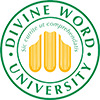Sources of Information
Being able to research and use materials which back up your study or offer different interpretations of your study area is an essential aspect of studying and learning
Primarily you need to be aware of where to look for information, how to access it and how to use it. You must also be able to scrutinise your sources to check that they are relevant and of a suitable nature to be included within your work.
Finding Information
You may assume, automatically, that academic text books are the primary source of information when you are engaged in a formal study programme. This may be true, to a degree, usually there is little need to question the credibility of such texts – they have probably been recommended by a tutor. There are, however, many other sources of information which should not be overlooked. Such sources include: the internet, newspapers, journals, transcripts from radio or TV programmes, leaflets, photographs and other artefacts (man-made objects).
Within the category of books there are many different types and genres, for example: fiction and non-fiction, including dictionaries, encyclopedias, biographies, almanacs, archives, yearbooks and atlases, to name just a few. There are even more categories of websites and other internet resources. All sources of information can be of relevance depending on the subject matter of the research or project you’re working on.
Secondary Documents
A secondary document is written after an event - usually the authors will not have witnessed the event themselves. Such documents are usually written with reference to primary documents and attempt to provide an interpretation. Core texts - academic texts related to the topic being studied - are an example of secondary documents. In current affairs a secondary source would be a standard news story. A story that has been reported after the event. As a secondary source is a writer’s interpretation of what happened (a primary source) it is more likely to contain observations, bias and subjective commentary that try to explain the event and put it into some sort of context.
Tertiary Documents
Tertiary documents usually act as pointers to primary and secondary documents. They are indexes, directories, bibliographies and other categorised collections of information - documents that you can turn to and be guided to other, potentially relevant, documents on a particular subject. For example, checking the bibliography of books can help to lead you to further research material or to looking at a list of similar stories on a news website.
Where to Get Your Information
There are a lot of different sources of information available to you as a student. The following list cannot hope to cover all sources of information, rather, it contains the main sources you are likely to find useful.
Wherever you get your information, to ensure that you conform to academic standards and rules, you should keep a note of your sources.
In the case of books and journals you should take especial care to note page numbers if you intend to use a quote or to paraphrase or summarise from any publication.
For internet resources you need at least the URL (web address) as well as the date that you accessed any web-page from which you quote or to which you refer.
Library Sources
It is often possible to go to a physical library without being a member and to search through the shelves and access publications and other resources. If you are studying in a University you are likely to have access to their library. A lot of libraries will have a retrieval system to help you to locate documents – such systems are commonly accessed via a computer, although some older systems still exist. Retrieval systems enable you to search a database of titles held at the library, usually by either the author, the title of the book or publication or to enter broader terms, like the subject you are researching, to see a list of available publications.
Internet Sources
There is a phenomenal amount of information available online, via web-pages, blogs, forums, social media, catalogues and so on. As there is so much information available and because such information can be published quickly and easily by anybody and at any time, it is important that you are vigilant in choosing reliable sources.
Sources from Bibliographies
Another way of locating information, books or publications, which might have a bearing on the topic being researched is to check through the bibliography of core texts or related books. Authors will have consulted other scholars and by checking their bibliography you will discover related publications which may well enhance your own research. Some authors will also provide a list of recommended reading and since they have already researched the subject area it may be worth taking note of their findings.
Sources from Colleagues
It is always worth discussing your study with friends, family and colleagues - you will often find that they have some interesting points of view and sometimes they may be able to help with sourcing of information. They may, for example, have studied the area at some time or know someone who has and be able to find or lend you relevant books or other resources.


